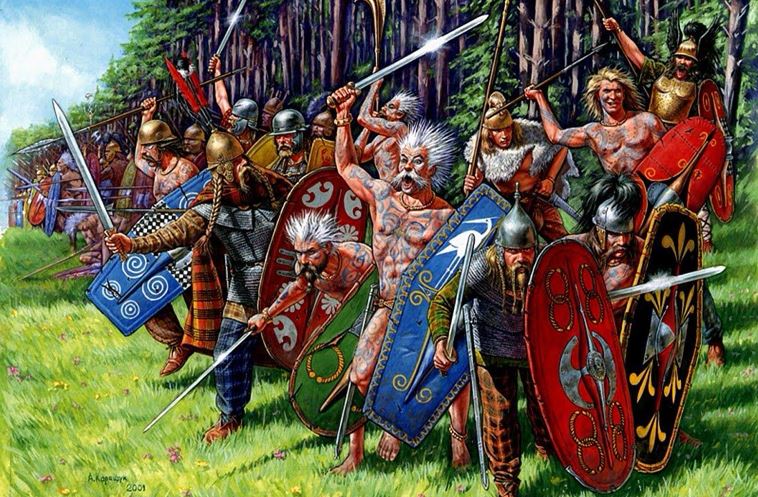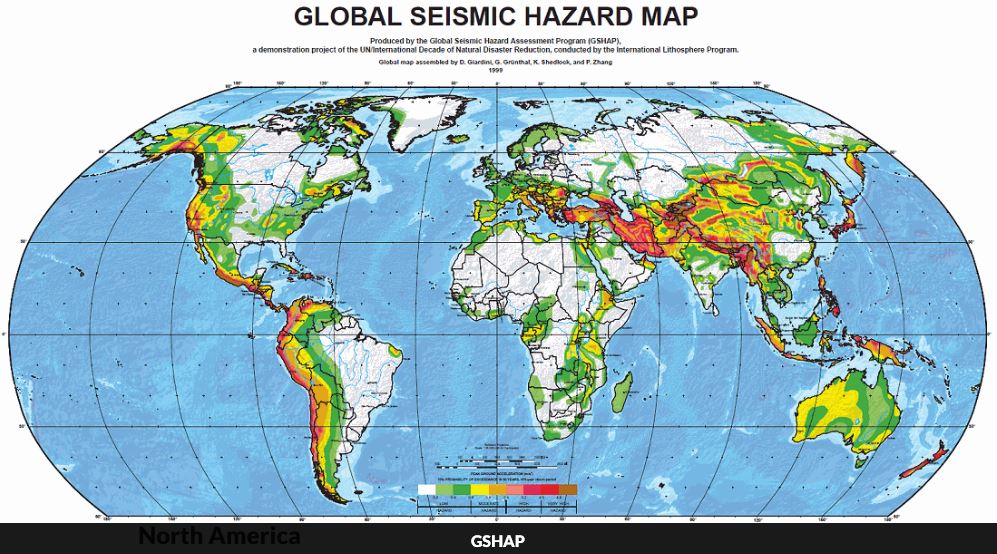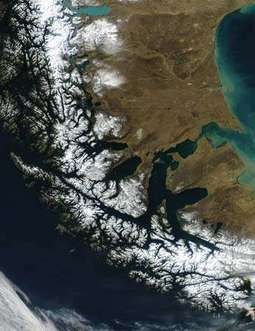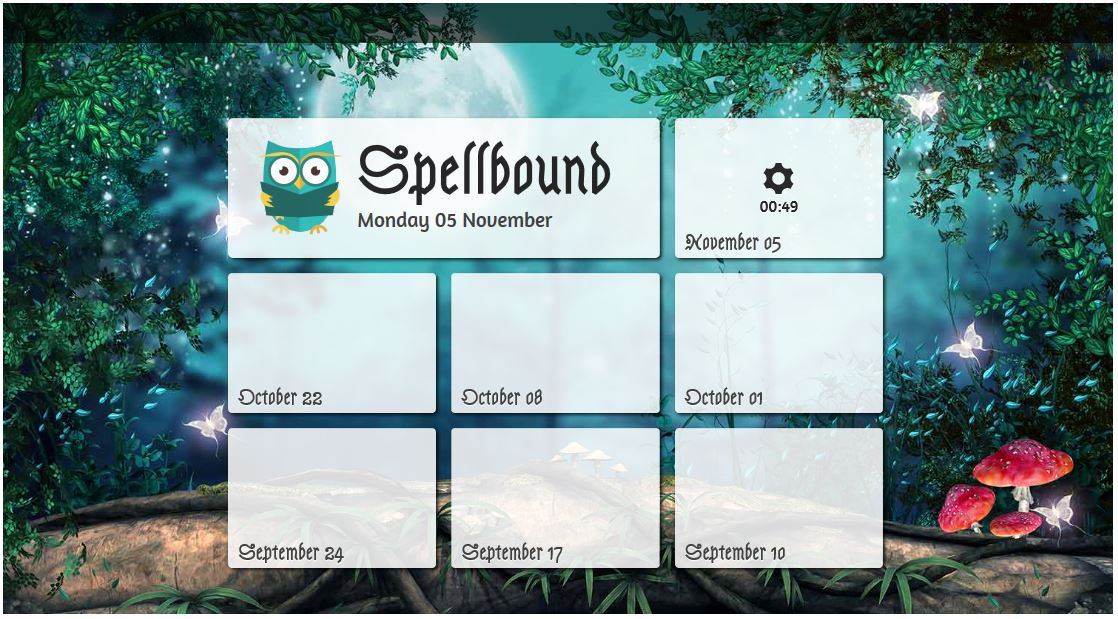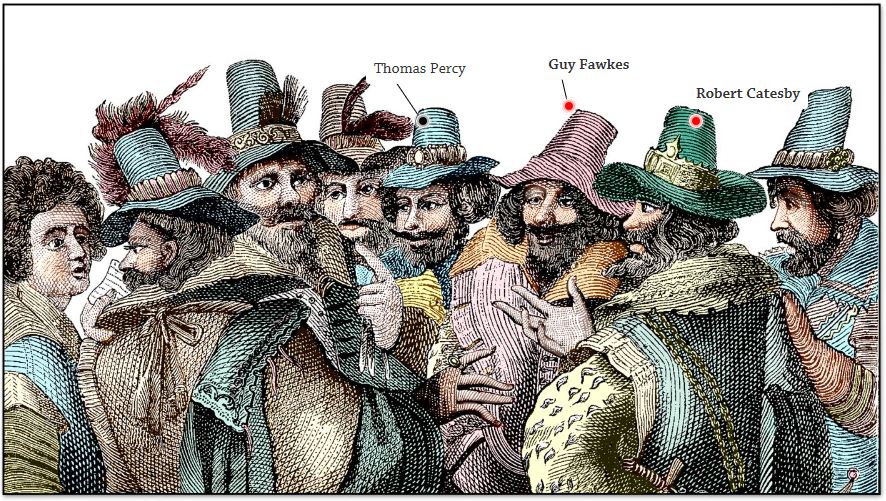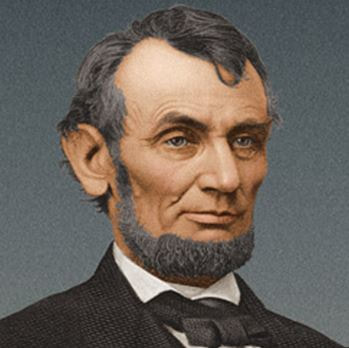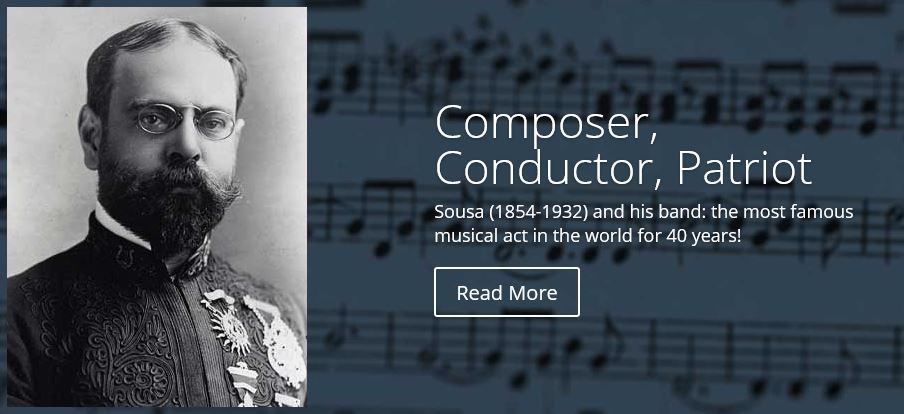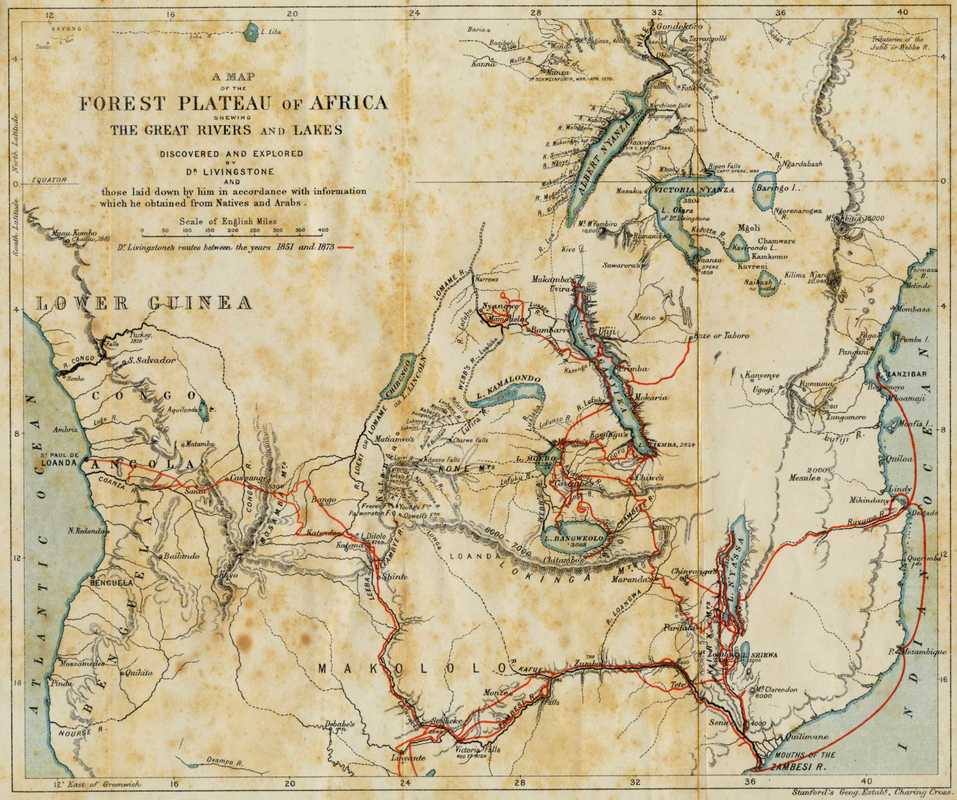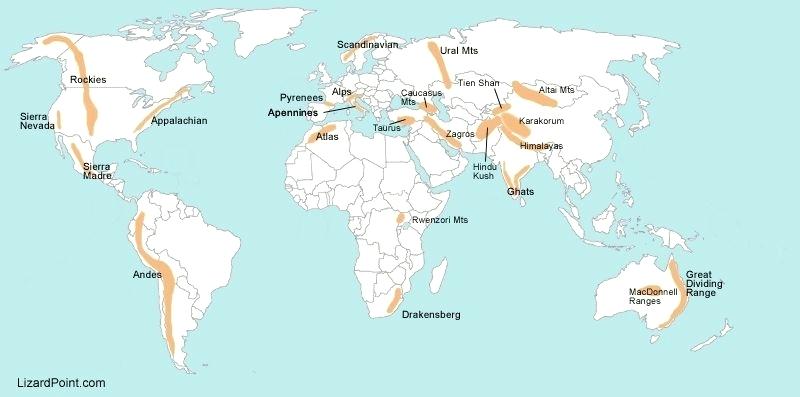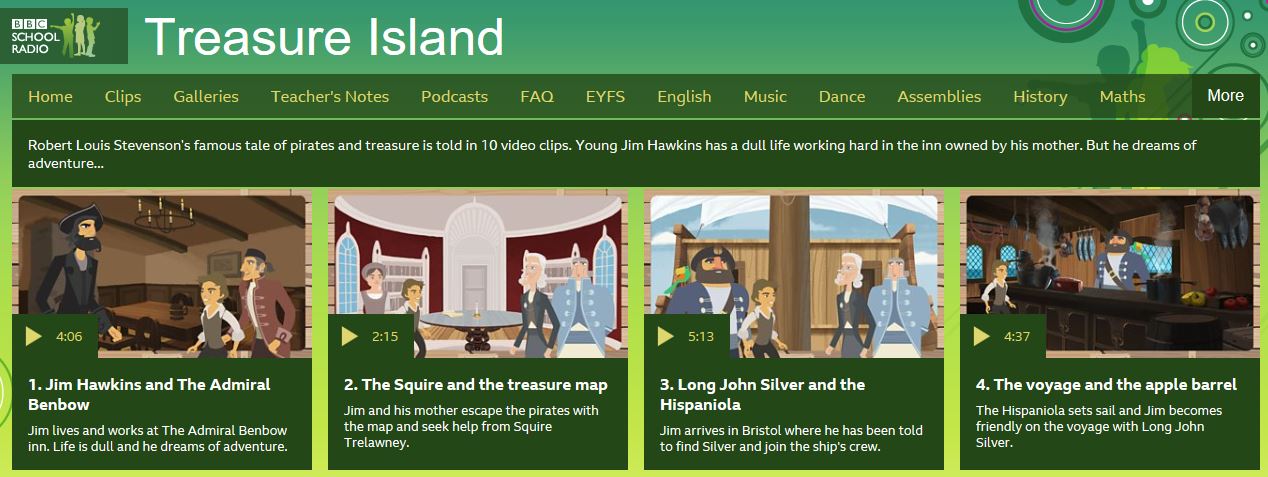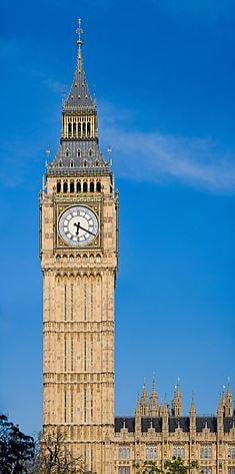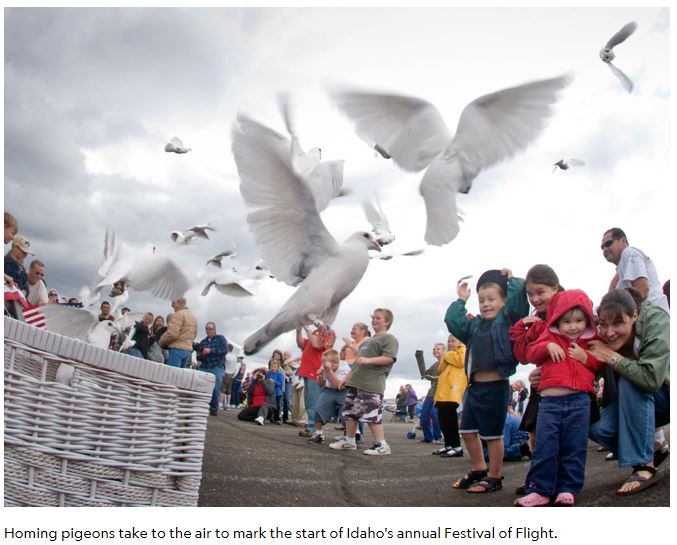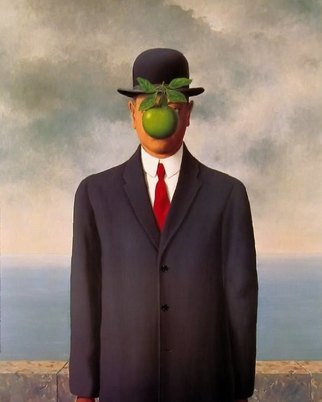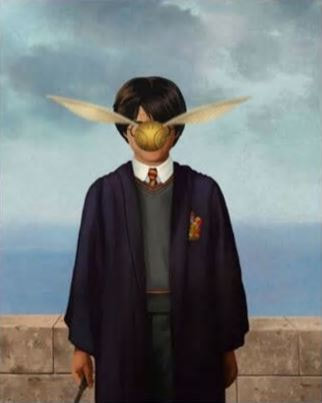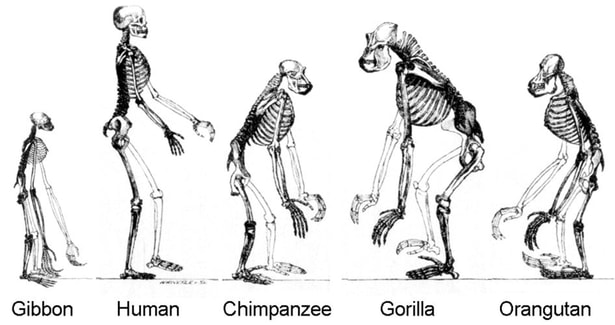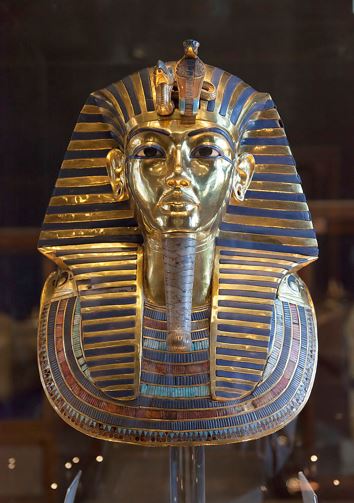* November, for the ancient Romans, was the ninth month of the year, and that is what it's name means.
It has been the eleventh month since 44BC, but it has stubbornly kept it's old name. *
It has been the eleventh month since 44BC, but it has stubbornly kept it's old name. *
This month we're beginning a new challenge called Eagle-Eye. From time to time, we're going to place an intentional mistake on selected pages of Bamboo Learners (amongst the many accidental ones - sorry). Your challenge? Use your eagle-eyed editing skills to spot the mistakes.
To help you get started, we'll be marking the area around some of the mistakes with an asterisk (*). Keep an eye out for them, then search the nearby text carefully to see if you can spot the selected error. Check the green text above for your first challenge.
Think you've got it? When you're ready, click on the image of an eagle's eye in the top right-hand corner of the page to check your answer and learn more.
To help you get started, we'll be marking the area around some of the mistakes with an asterisk (*). Keep an eye out for them, then search the nearby text carefully to see if you can spot the selected error. Check the green text above for your first challenge.
Think you've got it? When you're ready, click on the image of an eagle's eye in the top right-hand corner of the page to check your answer and learn more.
Celtic warriors at war (artwork from celticlife.com)
November 1 to 7
|
1 November - Since the 8th century AD, today has been celebrated by some as All Saints ' Day. While for Celts, this day marks the festival of Samhain, a celebration akin to New Year's Day .
1 November 1755 – At 9:30am, a series of violent earthquakes struck the city of Lisbon, in Spain. In three quakes, following quickly after each other, 17 000 of the city's 20 000 houses collapsed. |
Umm, Happy New Year to all you Celts out there?
Wait, what's a Celt? Click the pic above to learn more. Loving that hair! Did you know Spain has suffered earthquakes? I wonder what other countries are prone to tremors. Click on the Global Seismic Hazard Map below to explore those parts of our planet that tremble and shake. |
|
1 November 1762 - Spencer Perceval, one-time British Prime Minister, was born in London today in 1762. |
Spencer had twelve, yep 12, children. How would you like to have 11 brothers and sisters? I wonder what life would have been like with such a big family. Even at the time, Spencier's family would have been considered large. The average number of children per family in the UK at that time was around 5.5. Interested in learning more? Check out the 'Children born per woman' interactive below. Click on the play button in the bottom left-hand corner to watch how things have changed over time. What patterns do you notice? I wonder why. Teachers, you may find the related website an interesting source of discussion points. |
|
1 November 1800 – John Adams becomes the first President of the United States to live in the Executive Mansion (later renamed the White House). (S4)
1 November 1520 – The Strait of Magellan, the passage immediately south of mainland South America connecting the Pacific and the Atlantic Oceans, is discovered and navigated by European explorer Ferdinand Magellan during the first recorded circumnavigation voyage. (S4) |
Ever wondered what it's like to live or work in the White House? Take a Virtual Tour and check it out. Isn't the artwork awesome?
The image below shows a satellite shot of the Strait of Magellan. Can you spot it? To learn more about why this was, and is, such an important passage of water, it helps to have a sense of the alternative passage ships would have had to use until the opening of the Panama Canal. Use Google Earth to discover where the Strait is, then enjoy this short video of a modern ship passing through the Drake Passage, south of the notoriously dangerous Cape Horn. Imagine what it would have been like in a wooden vessel hundreds of years ago. |
|
1 November 1870 – In the United States, the Weather Bureau (later renamed the National Weather Service) makes its first official meteorological forecast. (S4)
1 November 1960 – While campaigning for President of the United States, John F. Kennedy announces his idea of the Peace Corps. (S4) |
How do weather forecasts work anyway? How can you predict Mother Nature? Do a little research, see what you can discover.
Teachers, check out these resources to share more about the Peace Corps with your kids. Students, ask your teacher about the world map challenge. Maybe it's something you could try at your school. |
Quick Question: What is this woman's job?
|
1 November 1848 – In Boston, Massachusetts, the first medical school for women, Boston Female Medical School (which later merged with the Boston University School of Medicine), opens. (S4)
|
So ... when you looked at the photograph above, what job first came to mind?
Did you think doctor, surgeon, pharmacist or nurse? Of course, it could be any of these, we'll never know, but the question brings to mind a famous riddle aimed to challenge people's assumptions. You may like to try it out on your friends and family. A father and son have a car accident and are both badly hurt. They are both taken to separate hospitals. When the boy is taken in for an operation, the surgeon says 'I can not perform the surgery. This boy is my son'. How is this possible? |
|
2 November 1976 - On this day, Jimmy Carter, former peanut farmer from Georgia, was elected the 39th President of the United States.
2 November 1930 - On this date in 1930, Ras Tafari was crowned Emperor Haile Selassie of Abyssinia in Addis Ababa. Ras Tafari is the focus of Rastafarianism. 2 November 1859 – A solid gold bedstead was presented to Queen Victoria by the Maharajah of Cashmere on this day in 1859. 2 November 1924 – The first crossword ever to appear in a British newspaper was published on this day in 1924. |
A solid gold bedstead? Sweet dreams indeed! Believe it or not, that's not the most unusual household item ever made from gold though. For me, that honour goes to a very functional item at the world famous Guggenheim Museum. Click here to visit the museum's official site or try the video link below to learn more. I love crosswords. What a brilliant way to test and build your vocabulary and spelling skills. My favourite are cryptic crosswords. I'm working on some to share with you this month. In the meantime, you may like to give the interactive crosswords below. Have fun. |
|
..3 November 1957 – On this day, Russians launched their second satellite, Sputnik II. The craft carried the first-ever space traveller from Earth. She was a small Russian dog called Laika.
3 November 1679 – On this day a comet was spotted heading towards Earth. The comet gave us a near-miss, which caused panic and superstition throughout Europe. Many felt that terrible events were about to happen on Earth ... |
Sounds like a creative writing opportunity to me. Let's rewrite history. Use your imagination to create a story of Laika's amazing adventure.
... but they didn't. Yay! |
Laika, the first space-traveller from Earth.
|
4 November 1605 – The Gunpowder Plot was uncovered at Westminster. King James was due to open Parliament on the 5th, and a number of Catholic conspirators had tunnelled into the cellar below the House of Lords. Acting on a tip-off, a search was made of the cellar at midnight, and Guy Fawkes plus 36 barrels of gunpowder were discovered.
Celebrating the fact that the King had survived, people lit bonfires all around London and the 5th of November soon became a public holiday, regularly celebrated with bonfires, and perhaps ironically, with fireworks. 4 November 1931 – Mahatma Gandhi, wearing a loincloth and an old shawl, arrived at Buckingham Palace for an audience with the king. Gandhi was the leading figure in the Indian movement for independence from the British Empire. The King, Queen and Gandhi had a cup of tea together. 4 November 1847 – Felix Mendelssohn, the German composer passed away on this day in 1847. |
The Gunpower Plot! Sounds like the title of a summer blockbuster. To learn more about this famous historical event, click on the image of the conspirators below.
Or, to learn more about fireworks and how they're made, try this link to Wonderopolis. Of all Mendelssohn's compositions, the Wedding March stands tall as one of the most famous. Feeling romantic? You'll find a clip of the piece below. Enjoy! |
|
5 November – Today was another ‘Dismal Day’ believed to be unlucky in the Middle Ages.
5 November 1968 – Richard Nixon was elected President of the United States. 5 November 1941 – Art Garfunkel, of Simon and Garfunkel fame, was born on this day. |
Dismal Day? No such thing. Every day is what you make it. Prove the superstition wrong once again by adding to your gratitude diary. What do you have to be thankful for today?
|
|
6 November 1814 – Adolphe Sax, the inventor of the saxophone, was born in Belgium on this day in 1814.
6 November 1854 – John Philip Sousa, the American composer and inventor of the sousaphone (a sort of massive tuba) was born on this date in history. Sousa is also famous for his military marches, one of which was used for the opening credits of Monty Python’s Flying Circus. |
One of the most famous saxophone players at the moment is Kenny G. Like to hear him in action? Click on his name and turn the speakers up.
Wow! Two famous musicians and instrument creators share a birthday today. Never heard of a sousaphone? Let's fix that. Use the links below to learn more about the instrument's creator and hear his design in action. |
|
7 November 1872 – A ship was sighted west of Spain with its sails set, but steering erratically. The ship was the Mary Celeste, and was completely deserted. The crew of eight, plus the captain, his wife and two-year-old daughter had simply disappeared. The lifeboat was missing, but the ship was in good condition. The mystery of the Mary Celeste has never been solved.
7 November 1919 – Nancy Astor became Britain’s first woman MP. |
The story of the Mary Celeste has inspired many a mystery writer. Learn more about her unusual tale at History.com
Creative juices flowing? Put pen to paper and tell your version of events. Only 2 years earlier, women were not even permitted to vote in the UK! Yet, once the discriminatory laws were overturned, Nancy soon earned her way into parliament. Inspired? Do a little research. What countries were the first to 'give' women the right to vote? Are things better for all women around the world today? What is suffrage? |
November 8 to 14
|
8 November 1951 – Three Himalayan climbers discovered and photographed giant footprints in the snow. The footprints were said to be made by the Yeti (alias the Abominable Snowman) and were found on the lower slopes of Mt Everest.
8 November 1602 – One of Britain’s oldest and most famous libraries, the Bodleian, was opened on this day in Oxford. |
Yeti - fact of fiction? What do you think?
If you are in the mood for a little story telling, you may like to use this as inspiration for your next piece of creative writing. If not, perhaps you'll enjoy exploring these famous hoaxes as reported by history.com. The library is amazing! Check it out in the video above or visit their website here. |
|
10 November - World Science Day for Peace and Development
10 November 1871 – The journalist Henry Stanley finally met the African missionary and explorer David Livingstone in Tanzania. As they met, Stanley coined one of the most famous quotes of the 19th-century – “Doctor Livingstone, I presume.” 10 November 1483 – Martin Luther was born. He began the Protestant Reformation and translated the Bible into German for the first time. |
Learn more about what this day is all about using the UNESCO the link to the left.
Mmm! That's got me thinking. I wonder what scientific discovery, innovation or invention has had the greatest beneficial impact on people and the planet to date. You may like to share ideas with your class. How do you think science could be used to promote peace and development in the future? Imagine you had unlimited resources, what would you invent to change people's lives for the better? Why would this promote peace? Mr Livingstone's story is a fascinating one. He visited parts of the world few Europeans had ever seen, at a time where global travel was a true adventure. To learn more about his story click on the map of his African journey below. |
|
11 November 1906 – The first balloon crossing of the Alps took place on this day in history. The balloon, the Milano, piloted by Murillo and Cresti, lifted off at Milan and passed over the summit of Mt Blanc, the highest mountain in the Alps.
11 November 1959 – The epic movie Ben Hur was premiered on this day in London. |
Wow! Can you imagine floating over one of the world's tallest mountains in a balloon? What an amazing experience!
Mmm! I wonder ... where are the Alps exactly? What other mountain ranges can you name? Can you place them on a map? What about the tallest mountains? If you're looking for a place to start your research, you may like to check out the 'major mountain range' map below. |
|
12 November 1847 – Chloroform was used as an anaesthetic during a British operation for the first time today in 1847.
12 November 1035 – King Canute, the Danish King who ruled in England, died on this day in 1035. Canute is remembered for getting his feet wet in the sea to show his flattering courtiers that he couldn’t command the tide not to come in. |
Anaesthesia! ... Bless you! Tissue?
If you've ever seen a movie where a character holds a handkerchief over another's mouth and they promptly fall asleep, you've seen (an exaggerated version) of the body's reaction to chloroform. The truth ... it takes a lot longer to have an effect and it can be dangerous to your health. Anaesthetics don't just put you to sleep either. There's much more going on in this very specialised field of medicine. Want some proof? Ask Mum and Dad (I wouldn't trust my siblings, personally) to wake you tomorrow with a (gentle) pinch on the arm instead of a noise. You'll probably find you awake quite quickly. Yet if something as simple as pinched skin can wake you, how do doctors perform surgery without doing so? The answer, well it's no longer likely to be chloroform, but a form of anaesthesia, nonetheless. |
|
13 November 1940 – The Walt Disney film Fantasia received its world premiere.
13 November AD354 – Saint Augustine of Hippo, the Christian thinker, was born on this day in AD354. A prolific writer, he is perhaps most famous for recording his observations of his fellow saint, Ambrose, who he noted had the remarkable ability to read without moving his lips. 13 November 1850 – Robert Louis Stevenson, the author of Treasure Island and The Strange Case of Dr Jekyll and Mr Hyde, was born on this day. He passed away in Samoa in 1894. 14 November 1770 – James Bruce, the Scottish explorer, became the first European to reach the source of the Blue Nile in Ethiopia on this day in 1770. The Blue Nile is a tributary of the main river. |
Pardon? Yes, you read that correctly. Before St Ambrose, there are no recorded instances of someone having read silently to themselves. St Augustine puts it this way: When [Ambrose] read, his eyes scanned the page and his heart sought out the meaning, but his voice was silent and his tongue was still. Anyone could approach him freely and guests were not commonly announced, so that often, when we came to visit him, we found him reading like this in silence, for he never read aloud. Amazing isn't it? You may be doing something right now that many literate people before you couldn't. So, if silent reading requires more skill does that mean it's always best? In a word, No! Click the link to learn why. If you would like to explore this further in class, why not talk to your teacher about testing to see how well you and your friends remember text that is read silently v text that is read aloud. It may just change the way that you study in the future. Treasure Island is considered a classic piece of literature. Interested in learning more about the story? You may like to explore the link below with your class. |
November 15 to 21
|
15 November 1922 – Today saw the first ever BBC news broadcast. The radio broadcast was made from London’s Strand at 6pm.
15 November 1875 – The level of the River Thames rose by around 28 feet on this day and caused severe flooding in London. 15 November 1738 – Sir William Herschel, who discovered Uranus, was born today in 1738. |
Oh no! Those poor people. I wonder whose feet they were. Why would anyone throw people's feet in a river? ... oops, hold on ... I may have misread that ... oh, I see ... ... ok, umm, how many metres is that? Can you find out for me? Haha! :) Did you know Uranus contains high levels of methane? Of course you did. Want to learn more? Click on the Astronomy link below to take a virtual tour of Uranus. |
|
16 November 1750 – The first Westminster Bridge was opened on this day. The bridge stood on the site of the present Westminster Bridge, and it replaced the old ferry that had been used to get people across the river.
|
Westminster, like many bridges around the world, is built where ferries previously served. Mmm! That reminds me of a puzzle. Want to give it a try? Click below to help a farmer ferry a wolf, a sheep and a cabbage across a river. Why is the farmer travelling with a wolf? No idea. That doesn't make the puzzle any less fun though. Can you solve it in the fewest possible moves?
|
|
17 November 1869 – The Suez Canal connecting the Mediterranean with the Red Sea, opened on this day. The canal turned the continent of Africa into an island.
17 November 1913 – On the topic of canals, the newly-dug Panama Canal saw its first ship make its way through the locks on this day in 1913. |
What an amazing accomplishment! But why go to all that trouble? Where is the Suez Canal anyway? Time for a little research, see what you can find out. There's a video below that you may enjoy too.
What's a lock? It's a device for moving a ship between waterways of different heights. There's a short video below to explain how they work. Before you watch it though, why not think through how you might solve the problem. How could you move a ship from a low river to a higher mountain lake? |
|
|
|
|
18 November 1858 – The bell ‘Big Ben’ was struck for the very first time on this day.
18 November 1870 – Pigeon Post was established between London and Paris on this day. Paris was under siege by German troops at the time, and the pigeons helped to get news in and out. The day and night service cost 5d a word. 18 November 1836 – WS Gilbert, of Gilbert and Sullivan Opera fame, was born. While Arthur Sullivan wrote the music, William Gilbert wrote the words. 18 November 1860 – Ignacy Jan Paderewski, who was both a concert pianist and the first Prime Minister of Poland, was born on this day. |
The bell was named after Sir Benjamin Hall, and weighed 13, 700kg. Sir Ben, did not.
Want to learn more about this world famous landmark? Click on the pic of Elizabeth Tower below. Wow! Why use a pigeon though, why not a bigger or faster bird? And, come to think of it, how did the pigeons know where to go? Would any old pigeon do? To learn more, click on the pic below to read a National Geographic review of the lastest research. |
|
19 November 1917 – Indira Gandhi, former Prime Minister of India, was born on this day.
19 November 1828 – Franz Peter Schubert, the composer, passed away in Vienna on this day in 1828. 19 November 1863 – Also on this day in history, President Abraham Lincolm gave his famous Gettysberg Address. His speech included these cherished words which lie at the heart of democracy … “government of the people, by the people, and for the people, shall not perish from the earth.” |
Interested in learning more about the first female Prime Minister of India? Try this link to Britannica Kids. It's amazing to think of what she achieved at just 12 years.
To celebrate Schubert's genius, you may like to listen to some of his more famous works today in class during your quiet reading or writing activities, or perhaps in a mindful moment. Don't know where to start? Try the video below. What is democracy anyway? Does every country have a democratic system of government? It's a big topic, but a fascinating one. Today might be a great day to begin to learn more. Talk to your teachers or parents, or head to the library to see what you can discover. |
|
20 November 1947 – Princess Elizabeth and Prince Philip were married on this day at Westminster Abbey. Their wedding cake weighted in at a modest 500lb.
21 November 1694 – Voltaire, the French writer, was born on this day in Paris. 21 November 1898 – Rene Magritte, the Belgian surrealist painter, also celebrates a birthday today. |
500 lb? What's that in kilograms? I wonder how many kids in your class it would take to weigh the same.
As a philosopher, Voltaire is world renowned for his wisdom and insights. To explore some of his ideas, click on the pic below. Teachers some of these ideas may offer an interesting stimulus for public speaking or debating activities this week. Want to learn more about Magritte? Click on the artwork (below Voltaire) that you think belongs to the real Magritte to explore the Tate for Kids website. Try a few games and explore a little while you're there. |
November 22 to 28
|
22 November 1819 – George Eliot, the English woman novelist (her real name was Mary Ann Evans), was born today in 1819. She concealed her real identity as women weren’t supposed to write novels at the time.
22 November 1963 – The Beatles’ first LP, With the Beatles, was released in Britain on this date. 22 November 1975 – The monarchy was restored in Spain. King Juan Carlos succeeded General Franco as Spain’s ruler. The country had not had a king since 1931, when Spain was declared a republic. 22 November 1890 – Charles de Gaulle, former President of France, was born on this day. |
The idea that writing wasn't a suitable pastime or profession for a woman sounds ludicrous, doesn't it? It wasn't just unfair and unkind either.
I wonder what the world would be like now if, throughout history, ALL people had been encouraged to reach their potential; if ALL people had equal access to education; if ALL budding young students of the sciences or arts had been able to pursue their dreams. Exercise your right to write today and tell the story. |
|
23 November 1963 – Today saw the first ever episode of a new television series. Dr Who first began broadcast on this day.
23 November 1869 – Valdemar Poulsen, the Danish inventor of the tape recorder, was born on this day. 23 November 1888 – Harpo Marx, the silent, harp-playing Marx Brother (real name Adolph), was born today in New York. |
Whenever I think of Dr Who I think of the tardis, the time travelling telephone box he used to explore the universe, and that reminds me of a fun maths challenge. Work with your classmates to build a replica phone box by stacking two cubic metre frames on top of each other. When you're done, your challenge is to squeeze as many of your classmates as possible into the 'tardis'. Estimate the number first, then give it a try. How many can you fit ... and how?
Got an old tape recorder lying around in the garage? Ask Mum or Dad, if it's broken they may be happy for you to use it for your next deconstruction project. Pull it apart. What do you notice? Can you see how it works? A little research may help you make sense of your discoveries. While typing this, I accidentally left out the comma between the words silent and harp. What difference does this make to the meaning? Explain it to a friend (think air-guitar) then create or research other expressions or sentences where punctuation makes an important difference. |
|
24 November 1859 – The controversial book The Origin of Species by Charles Darwin was published on this day. The book presented Darwin’s theory of evolution, and scandalised Victorian readers.
24 November 1434 & 1715 – This date is remembered for occasions when the River Thames in London froze over. A frost fair was held on the ice from this day in 1715 until the following 9th of February. Drink stalls were set up, oxen roasted etc 24 November 1868 – Scott Joplin, the composer who wrote The Entertainer (the music used in the film The Sting) was born in Chicago. |
While we see variations of the first image (below) everywhere in popular culture, it isn't the best representation of Darwin's theory (can you see why?). To explore further, click on the second image (comparing skeletons) to visit Britannica kids. You may like to talk about your discoveries with your teachers and parents too.
|
|
25 November 1984 – On this day, a host of rock stars gathered at Ladbroke Grove, London, to record Do They Know It’s Christmas? The song was recorded to raise money to combat Ethiopian famine. The single went on to become the highest selling single of all time in the UK, raising over 90 million British pounds.
25 November 1520 – Three ships became the first European vessels to sail into the waters of the Pacific Ocean this morning in 1520. The three ships were commanded by Portuguese explorer Ferdinand Magellan. Every man in the ships knelt as Ferdinand prayed that the waters of the new ocean would always be as peaceful as they were that morning. Then he said … “ I name this sea the Pacific Sea.” 25 November 1914 – Joe Di Maggio, the great American baseball player, who married Marilyn Monroe, was born on this day. 25 November 1844 – Carl Benz, the builder of the first petrol-driven car, and half of Mercedes-Benz was born on this day. |
Did they know it was Christmas? Probably. Christianity is the largest practised religion in Ethiopia, with around 2 in every 3 people believed to be believers. That makes me wonder. What do others around the world believe? Why not do a little research and see what you discover?
Mmm, that's interesting, he named it the Pacific Sea, not the Pacific Ocean. We often read of pirates sailing the seven seas too. So what are seas? Are they the same as oceans? To learn more, click on the pic of the gentleman floating in the Dead Sea, below. |
|
u26 November 1922 – The tomb of the Egyptian King Tutankhamen was opened after being sealed 3 250 years earlier in 1337BC. Sixteen steps had been discovered leading down into the sand near Luxor, with a door at the bottom. The archaeologist Howard Carter made a hole in the door and looked inside with a candle. He was asked what he could see. He replied … “Wonderful things.” The tomb, stocked with treasures, was the most complete ever seen.
27 November 1701 – Anders Celsius, the man who gave us the centigrade temperature scale, was born in Sweden. 27 November 1942 – Jimi Hendrix, the legendary US rock guitarist, was born on this day. 28 November - Today is another ‘Dismal Day’ believed to be unlucky in the Middle Ages. They were also known as ‘Egyptian Days’. |
Wow! Can you imagine how Mr Carter must have felt? What he would have seen?
To learn more about 'King Tut', click on the image of his death mask below. I was watching a movie the other day and a character said the temperature was 100 degrees. Is that even possible? Where do you think the movie was set? What temperature scale do you think the character was using? What temperature is that on Mr Celsius' scale? How do you convert between the two? Which scale do you think is easier to use? Why? How do thermometers work? Can you make one? Start with a little research. See where it takes you. Another Dismal Day? Nonsense! Let’s focus on gratitude. Prove the medieval superstition wrong – update your diary with all the good things that happen to you today. What do you have to be thankful for? |
November 29 & 30
|
29 November 1937 – On this day, the number 999 had a new meaning in Britain. From 8am today, dialling this phone number got you straight through to Scotland Yard.
29 November 1832 – Louisa May Alcott, author of Little Women, was born in Pennsylvania on this day. 29 November 1898 - CS Lewis, the author of The Lion, the Witch and the Wardrobe and The Narnia Chronicles, amongst many other books, was born on this day in Belfast. 30 November 1580 – Sir Francis Drake returned from a three-year voyage around the world on his ship, the Golden Hind. It was only the second such voyage ever, and the first achieved by an Englishman. Queen Elizabeth I knighted him on board the Golden Hind. 30 November 1667 – Jonathan Swift, the author of Gulliver’s Travels, was born on this day. 30 November 1834 – Mark Twain, whose real name was Samuel Clemens, was born today in 1834. Twain was the author of Tom Sawyer and Huckleberry Finn. 30 November 1874 – Sir Winston Churchill, Prime Minister of Britain during WWII was born on this date in history. 30 November 1900 – Oscar Wilde, world famous poet, passed away on this date. Among his last words were … “Either this wallpaper goes or I do.” |
Calling 999 helps you connect to the police in Britain, but what about where you live? Take this opportunity to create a list of emergency contacts for your family. What is the number for emergency services? Poisons information? Where is the nearest hospital? What is your family evacuation plan? Do you know what to do if there’s an evacuation or lockdown event in your school? How should you keep yourself safe in a fire? Now’s the time to find out.
The Narnia Chronicles are fantasy classics. Want to celebrate Mr Lewis' birthday? Got a spare hour or so? Enjoy the cartoon version of The Lion, the Witch and the wardrobe below. Or, visit your library and add one of Mr Lewis' books to your reading list this week. Wow, there are so many famous authors who have birthdays this week! And on that note, we'll go too. It has been an action packed month. What was your favourite learning adventure? What would you like to learn more about? The adventure continues in December. See you soon. |
Here's a little classic Narnia to end the month. Thank you Mr Lewis.
See you in December!

